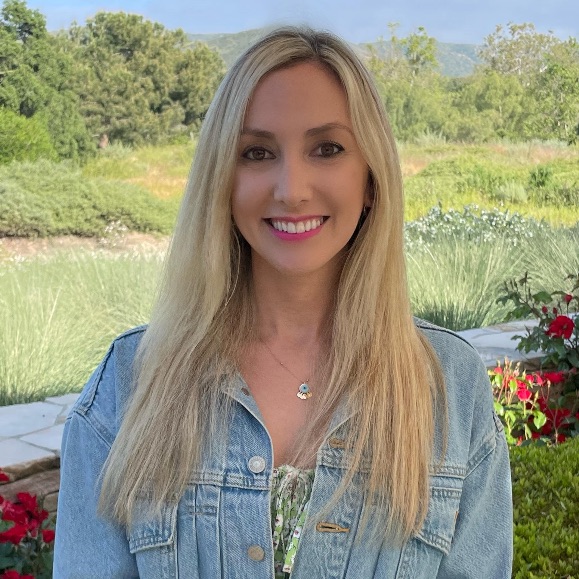What is domestic abuse, and how do I know if I’m experiencing it?
Domestic abuse—also referred to as domestic violence—is a pattern of behavior used by one person to control or harm another within an intimate or family relationship. Abuse can be physical, but it also includes emotional, psychological, verbal, sexual, and financial forms of control.
Common signs you may be experiencing abuse include:
- Being constantly criticized, belittled, or made to feel worthless
- Feeling afraid to speak up or express your needs
- Having your access to money, transportation, or communication tightly controlled
- Being isolated from friends, family, or outside support
- Experiencing threats, intimidation, or violence
- Being forced into unwanted sexual activity
- Walking on eggshells to avoid triggering your partner
If you’re questioning whether your relationship is abusive, that in itself is a red flag. A domestic abuse therapist can help you sort through your experiences in a nonjudgmental space and validate what you’re going through.
Can therapy help someone who is currently in or has left an abusive relationship?
Yes. Therapy for domestic violence is beneficial whether you're:
- Still in the relationship but unsure what to do
- Planning to leave and need support or a safety plan
- Have already left and are processing the aftermath
A domestic abuse therapist can help with:
- Recognizing the dynamics of power and control
- Addressing trauma responses like hypervigilance or emotional numbing
- Managing fear, guilt, shame, or grief
- Rebuilding a sense of self and personal autonomy
- Navigating legal, financial, or housing challenges
Therapy isn’t just about talking—it’s about regaining control over your story, and making choices that are safe, empowering, and informed.
What types of therapy are used to support survivors of domestic abuse?
Several therapeutic approaches are especially effective for survivors of abuse. These include:
Trauma-Focused Cognitive Behavioral Therapy (TF-CBT)
Helps survivors recognize and change harmful thought patterns developed during or after abuse. Focuses on emotional regulation, safety, and resilience.
EMDR (Eye Movement Desensitization and Reprocessing)
Supports reprocessing of traumatic memories so they become less emotionally distressing. Many survivors of domestic violence find EMDR especially helpful for reducing PTSD symptoms.
Somatic Therapy
Focuses on how trauma lives in the body. Techniques may include grounding, breathwork, and movement to release physical tension and reconnect with safety.
Narrative Therapy
Helps survivors reframe their story from one of victimhood to one of survival and empowerment.
Psychoeducation
Empowers clients with knowledge about trauma, abuse cycles, and healing processes so they can understand and normalize their reactions.
The best domestic violence therapy often integrates several of these approaches, tailored to the client’s specific needs and history.
How do I safely seek help if I’m living with an abusive partner?
Safety is the top priority. If you're living with an abuser, seeking therapy can be difficult—but it’s still possible.
Steps to consider:
- Use safe devices—not shared phones or computers—to research or contact a domestic abuse therapist
- Schedule therapy sessions during times when your partner is not home
- Let your therapist know your situation during the first call or intake so they can help create a safety plan
- Know that therapy is confidential—your abuser does not have to know you’re receiving support
- If needed, reach out to a domestic violence hotline to explore shelter, legal, or safety resources
Therapists trained in domestic abuse therapy understand the risks and will work with you to keep you safe while offering emotional support.
Is abuse always physical, or can it be emotional, verbal, or financial?
Abuse is not just about bruises or broken bones. In fact, many survivors say the emotional and verbal abuse left deeper wounds than the physical violence.
Types of abuse include:
- Emotional abuse: Gaslighting, manipulation, humiliation, threats, and guilt-tripping
- Verbal abuse: Yelling, name-calling, constant criticism, or threats
- Financial abuse: Controlling all money, preventing you from working, stealing from you
- Sexual abuse: Coercion, assault, or any unwanted sexual contact
- Digital abuse: Monitoring your messages, GPS tracking, or demanding passwords
If you feel controlled, unsafe, or afraid in your relationship—even without physical violence—it’s abuse. Therapy can help you trust that feeling, understand your worth, and explore your options.
What should I expect in my first therapy session as a survivor of abuse?
The first session in domestic abuse therapy is about building safety and trust. You don’t have to share everything. You don’t even have to call it abuse if that word doesn’t feel right yet.
Your therapist may ask:
- What brings you to therapy now?
- What has your experience in the relationship been like?
- How are you coping—emotionally, physically, and day-to-day?
- Do you feel safe at home, and is it okay to contact you there?
- What are your goals for therapy?
You are always in control of what you share. The goal is not to push or fix you, but to walk beside you in a way that feels supportive and empowering.
Can therapy help me rebuild self-esteem and trust after abuse?
Yes. One of the cruelest effects of abuse is how it erodes your sense of identity and worth. You may question your judgment, feel ashamed of staying, or wonder if you’ll ever trust again.
In therapy for domestic violence, you’ll work to:
- Understand how abuse impacted your self-perception
- Separate your identity from what your abuser told you
- Rebuild a sense of autonomy and confidence
- Explore how to set healthy boundaries in future relationships
- Learn to recognize red flags and trust your instincts again
Reclaiming your voice, your body, and your inner strength is possible—and therapy offers the tools to help you do it.
How do I find a therapist who specializes in domestic violence or trauma?
When searching for a domestic abuse therapist, look for someone who:
- Lists domestic violence therapy, trauma, or abuse recovery as specialties
- Uses terms like trauma-informed, EMDR, or PTSD treatment
- Has experience with safety planning, crisis intervention, and survivor advocacy
- Prioritizes empowerment, not judgment or diagnosis
You can search directories like MiResource.com, ask local women’s shelters for referrals, or reach out to national hotlines for guidance. Many therapists now offer online domestic abuse therapy for added privacy and flexibility.
Can children who witnessed domestic abuse benefit from therapy too?
Yes. Children don’t have to be directly abused to be deeply affected by witnessing violence, fear, or chaos at home. Even very young kids can internalize trauma, leading to emotional, behavioral, or developmental challenges.
Therapy for children who’ve witnessed domestic abuse can:
- Help them process what they’ve seen in age-appropriate ways
- Reduce anxiety, aggression, or withdrawal
- Improve their sense of safety and emotional regulation
- Strengthen the caregiver-child bond
- Break cycles of trauma or future relational harm
A trauma-informed child therapist can also help you, as a parent or caregiver, support your child’s healing while navigating your own.
What legal or safety resources can therapy connect me to?
Domestic abuse therapy often connects clients with vital outside resources, including:
- Shelters and safe housing programs
- Domestic violence legal advocates
- Protective orders or custody support
- Healthcare referrals
- Support groups for survivors
- Hotlines and 24/7 crisis intervention
Your therapist can help you build a comprehensive safety plan, whether you're planning to leave or staying for the time being. You don’t have to figure it all out alone—help is available.
Is couples therapy recommended if there’s been abuse in the relationship?
Generally, no. Couples therapy is not appropriate in situations where abuse is present or suspected. That’s because:
- The power dynamic is unbalanced, which can make therapy unsafe
- The abusive partner may manipulate the session to maintain control
- The survivor may not feel free to speak honestly or safely
Instead, each person should receive individual therapy. If the abusive partner is willing to seek help, they should work with a therapist trained in abusive behavior intervention—not relationship repair.
Domestic violence therapy focuses on survivor safety, empowerment, and trauma recovery—not restoring a dangerous dynamic.
What if I’m afraid to talk about the abuse—can therapy still help me?
Yes. Many survivors feel ashamed, afraid, or unsure if what they experienced “counts” as abuse. You don’t have to share everything at once—or ever—if you’re not ready.
Your domestic abuse therapist will:
- Go at your pace
- Create a safe, confidential environment
- Never pressure you to disclose more than you want
- Help you name your experience on your terms
- Support your healing even if the story stays partially unspoken
Sometimes, the most important part of therapy isn’t the words—it’s being believed, supported, and slowly reconnecting with your own truth.
Abuse thrives in silence—but healing begins with support. Whether you’re still in the relationship or are taking your first steps toward recovery, therapy for domestic violence can help you reclaim your power, your voice, and your future.
Reach out to a qualified domestic abuse therapist near you—or start with online domestic abuse therapy if privacy or flexibility is a concern. You are not alone. You are not to blame. And you are never beyond healing.













